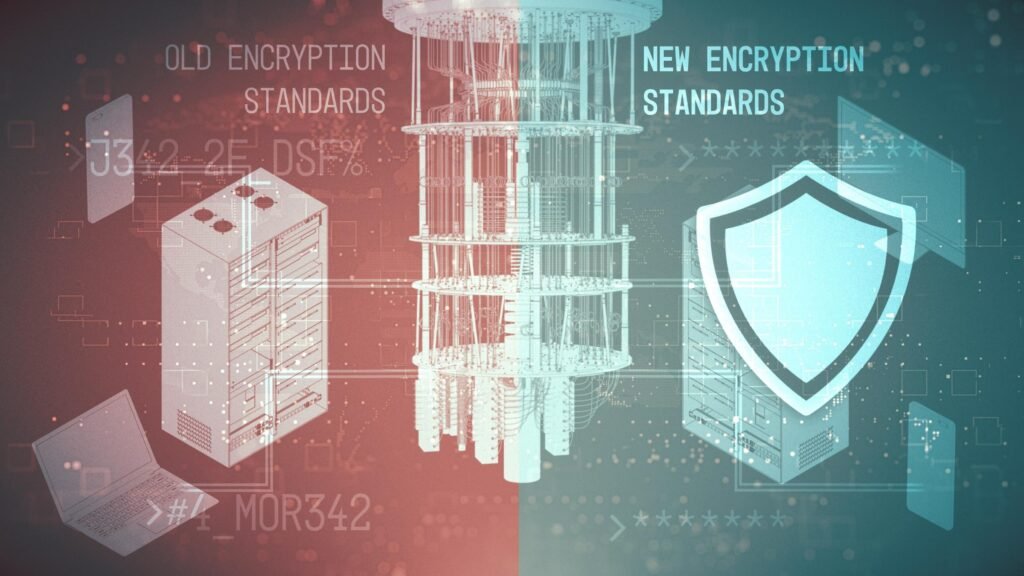Introduction
The rate of advancement of quantum computing has not just enlightened possibilities but raised severe threats to information security. In light of this tremendous growth in technology, traditional encryption protocols that prevent digital communication and securing of vital information may very well become vulnerable to attacks that are quantum-computing-based. It has consequently led to quantum-resistant encryption as the next-generation encryption, also termed post-quantum cryptography, which protects communications from imminent threat of quantum attacks. Hence, this article investigates the importance of quantum-resistant encryption, what it is, and the different ways businesses and individuals can adopt for becoming quantum-secure.
What is Quantum-Resistant Encryption?
Quantum-resistant encryption refers to cryptographic algorithms designed to withstand quantum computer attacks. While classical computers depend on binary logic (1’s and 0’s), a quantum computer uses “qubits” to perform advanced calculations at an exponential rate faster than classical machines. This jeopardizes the security of widely used encryption processes, such as RSA, ECC (Elliptic Curve Cryptography), and Diffie-Hellman key exchange, where these could be cracked in milliseconds, in comparison to the time taken by a regular computer.
Post-quantum cryptography(PQC) designs encryption algorithms that remain secure even in the wake of mighty quantum computing endeavors. These encryption techniques are built from mathematical problems, slow to be solved by quantum computers, and are currently perceived to provide long-range secrecy.

Why Quantum-Resistant Encryption Is Necessary
With encryption as the primary method to secure data, financial transactions, and communication transmissions worldwide, it is evident that quantum-resistant encryption is now a grave necessity. The Why:
- Future Security Guarantee – The current encryption methods could get wiped out due to quantum computing. Quantum-resistant encryption ensures that data remains safe in the long run.
- Leaning toward regulatory compliance-Government and various cybersecurity agencies have been endeavoring to put forth targets in post-quantum security.
- Data privacy protection.Response in place-Rapidly changing threats could lead to a big data breach where personal data-theft and exposure might trigger to anything as controvertible as private corporate data protection.
- Securing cryptographic infrastructure – Governments and enterprises’ day-to-day business are dependent heavily on cryptographic infrastructure for use in safe authentication, data encryption, and communication.??Moving to quantum-resilient encryption will help develop this security across their respective domains.??Durability is life.
Some Leading Quantum-Resistant Encryption Algorithms
Post-quantum cryptographic algorithms prevalent for safeguarding against the quantum threat have been well studied. Post-quantum cryptographic algorithms are presently being standardized by the National Institute of Standards and Technology (NIST). Materpieces in this regard include the following selected non-exclusive options?
- Lattice-Based Crypotography – Built using complicated lattice structures making them challenging to crack for an adversary exploiting a quantum computer.
- Code-Based Cryptography ??? The process of breaking it entails cracking into error-correcting codes, an attempt which is proved to be a tremendously difficult task.
- Multivariate Polynomial Cryptography: Describes a problem of solving equations of several variables, on which, in the quantum world and classical world are two very difficult problems.
- Hash-Based Cryptography: Is designed for secure digital signature implementations using hash functions, protecting against quantum acts.
- Isogeny-Based Cryptography: This is mostly related to algebraic structures to elliptic curves.

How Businesses Can Prepare for the Post-Quantum World
It is important for organizations and security professionals to start making efforts to bring quantum-resistant encryption into their security plan proactively. Here is how:
- Stay Informed – Track NIST’s posts on cryptographic standardization and emerging guidelines and recommendations.
- Evaluate Cryptosystems – Identify all the implemented cryptographic systems and to make sure if they are vulnerable against quantum threats.
- Hybrid Encryption – Move towards hybrid encryption using the classical algorithms or a combination of quantum-resistant and classical algorithms, so that migration can be used safely.
- Quantum-Secure Development – Convince software developers and security professionals to implement quantum-resistant cryptography in their applications.
- Working with Cybersecurity Experts – Collaborate with the top-class professionals of cybersecurity for keeping up with changed encryption standards.
- Planning Secure Future – This would mean coming up with plans for transitioning into post-quantum cryptography and securing data.
In Conclusion
The quantum revolution is near, and it is inevitable that it will impact cybersecurity. The journey toward quantum-resistant encryption is not a faraway issue but fully incumbent upon both organizations and individuals. To achieve continual protection, it is by what we understand and how we prepare oneself for post-quantum cryptography, that the need is met for digital security to face the challenges of technology evolution.
Get ahead of things with the most cutting-edge cybersecurity news at Jazz Cyber Shield and secure your digital assets for the era of quantum computing.



